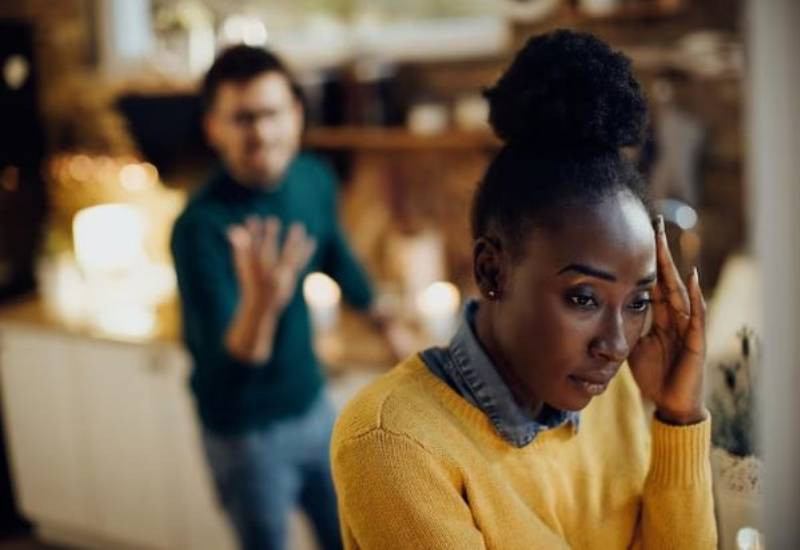
The magic in relationships does not always last forever. While there are happy-ever-after(s), most relationships end up facing great challenges that often test couples' resolves. There comes a time when pain and complications replace the beauty that once was in a relationship.
For most people, this is often the time to walk away.
While it may seem obvious to jump ship when a relationship goes sour, a lot of people take too long to let go.
"Fear of the unknown is the number one reason why people hold onto unproductive relationships longer," says Beryl Aluoch, a psychology graduate.
"In a case where there are no children and none of the partners is at threat of violence if they left, people stay willingly because they are so used to being with their partners that they fear being alone. It can also be because of happy memories. This in psychology is called intermittent schedule of reinforcement, the randomness of something good happening in your relationship," she says.
For most people, the urge for certainty is so high that they will often hold onto situations and people to fulfil this need. To be fair though, letting go of people we have built deep connections with is very difficult; however, holding onto them much longer is even more damaging.
Hard decision
So how do you finally let go of that harmful relationship with a partner, friend, or family member?
"First, you have to decide to leave," Beryl says. "Most people keep postponing leaving while a lot more others are not even aware that they are in a toxic situation. It is not always easy, but you have to recognise that the relationship is no longer working for you and then acknowledge it is time to leave. Then you can go forward from there."
For Achol Onyango, it took six months of repeated and exhausting events for her to make up her mind.
"In my last relationship, it took me about half a year to finally decide that, that was it. It had not been working for a while. There was always something to fight about every weekend. Sometimes, he would go out on a Saturday and come back on Monday. He was a heavy drinker, so, I would be left behind in the house worried about his safety," says the 26-year-old.
"It did not bother him at all. But that is just one example. I cried a lot that last period, but then I got to a point I told myself I have to leave before I lose myself completely. That was last year December. I wrote it down and pinned it on my wall. I remember the date. It was December 19. Honestly, though, I think we had stopped being in a relationship somewhere around July."

moving on
Once the decision is made, distance and change of environment are recommended. This helps to give you space to process your emotions away from the person's influence.
"I have blocked all my exes. When I break up with someone, I delete numbers and block them on social media," says Judy Kioko.
"When it is over, there is nothing to talk about. You are an ex. Physical and emotional distance gives the person time to think soberly. Take a break or move out if you can. If you cannot, go stay with someone who can support you until you can. Being away helps you process your emotions without interference from the person you are trying to cut off. Physical distance often likely leads to emotional independence, but it is hard to achieve it while still staying with or seeing the same person," says Beryl.
And Achol says that leaving was not exactly a decision she came to by herself.
"It happened that I had travelled at the time, so, I was not home. Communication between us became poor. He was not answering calls, and when he did, he sounded impatient most of the time. I tortured myself wondering what he was up to before I decided I could not live like that anymore."
She adds, "Then I started reducing the number of calls I made to him per day, and if he did not answer a text, I would not say anything else that day unless it was very urgent. It was difficult, and I worried a lot that I was doing more damage, but it worked eventually. By the second month, I could go four or five days without talking to him, and it did not feel so bad."
Positive distractions
According to Beryl, it can take the person more than one attempt to move out. "It is normal to leave and come back, especially if you have been with the person for a long time. However, what is important is to believe in yourself, that you can do it," she says.
Other than physical distance, positive distractions can also help someone to let go and slowly detach from a relationship.
Kelvin Mwangi says that focusing on somebody else often helps him get over difficult relationships. "I go for events and night outs to meet new people. I arrange for dates with other people and just shift my focus to some other people. Before I know it, I am deep into something else and the other person does not bother me anymore."
While distractions are a good way to take your mind off the person you are trying to get over, psychologists advise against getting into new relationships to get over another relationship.
"Getting into a new relationship without resolving your emotions from the previous one is in the long term harmful. A lot of people try to fill the void by going out with somebody new, and it is distracting for a while, but eventually, all the unprocessed emotions from the previous relationship catch up, and all the insecurities start to show up. Instead, take up a new hobby. Go hiking, take up a new course. Take that time to improve yourself," Beryl says.
"I read a lot on that trip," Achol says. "It was difficult to focus at first, but I kept at it. I also focused on my writing projects. After a while, I found that I was not thinking about him a lot like I used to."
Mercy Joy, 32, finds that she is more productive at work in the period that precedes breakups. "Of course, by that time, you no longer enjoy each other's company. Either you are fighting a lot or one person is avoiding the other. During such times, I stay at work till late, and leave home early."
Another way to let go of someone is to stop holding on to the memories you have had with them. Holding on to good memories is common because such happy events offer people a glimpse of the happy world or life that they had envisioned living with their person and reignite hope for that life.
"They are not going to change," Judy says. "If they have not changed till now, it is not going to happen. Stop thinking about the good times you had earlier in the relationship. Those days have passed."
Therapy
"Although such good days are rare and the happiness or relief they bring does not last long, people will often cling to them for as long as they can. They will convince themselves that it (their situation) is not as bad. That can be very deceiving. You need to let go of the guilt that you might be throwing away something good. Cherish the good times, but do not cling to them. If it helps, write down the good memories versus the bad ones - that may help you see why you should leave," says Beryl.
Therapy is also another way to help someone let go of harmful relationships. A professional therapist can help you unpack your emotions and guide you into finding the healing that you seek.
"I considered therapy. A friend of mine recommended a therapist to me. We had two Zoom sessions, then I could not continue but the therapist asked me a very deep question at the start. She asked what I would lose by leaving and all I could think of was his company. I realised that that was replaceable," says Achol.
"When people come to me, I often ask whether they have tried therapy. A lot of people often have not, and I encourage them to. Therapy does not have to be as formal," says Beryl, adding "Sometimes just talking to someone who understands your situation and does not judge you can be equally helpful, especially where you cannot access therapy services."
Judy says that friendships play a big role during a breakup. "We talk a lot with my friends," she says.
"I tell them everything that goes on in my life and they also do the same. We are always there for each other."
 The Standard Group Plc is a multi-media organization with investments in media
platforms spanning newspaper print
operations, television, radio broadcasting, digital and online services. The
Standard Group is recognized as a
leading multi-media house in Kenya with a key influence in matters of national
and international interest.
The Standard Group Plc is a multi-media organization with investments in media
platforms spanning newspaper print
operations, television, radio broadcasting, digital and online services. The
Standard Group is recognized as a
leading multi-media house in Kenya with a key influence in matters of national
and international interest.


